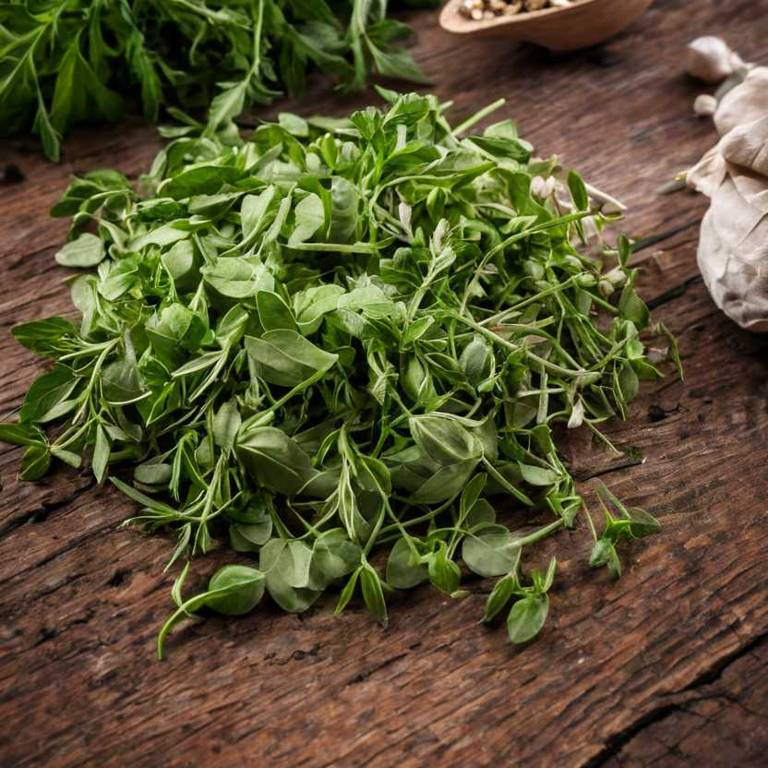Beet (Beta vulgaris)
Beet (Beta vulgaris) is a member of the Amaranthaceae family, native to Europe, Asia, and North Africa. Traditionally, its leaves, stems, and roots have been used for decoctions, infusions, and culinary uses.
This herb is particularly valued for its diuretic, anti-inflammatory, and expectorant actions, and has a long history of use in european herbal medicine, mediterranean herbal traditions, and japanese kampo medicine.

Quick Facts / Key Information
| Common Name | Beet |
|---|---|
| Scientific Name | Beta vulgaris |
| Plant Family | Amaranthaceae |
| Genus | Beta |
| Species | vulgaris |
| Native Range | Europe, Asia, North Africa |
| Plant Parts Used | Leaves, Stems, Roots |
| Primary Medicinal Actions | Diuretic, Anti-Inflammatory, Expectorant |
| Primary Traditional Systems | European Herbal Medicine, Mediterranean Herbal Traditions, Japanese Kampo Medicine |
| Historical Preparation Methods | Decoction, Infusion, Culinary Use |
Botanical Identity
- Scientific Name
- Beta vulgaris
- Common Name
- Beet
- Synonyms / Alternative Names
- Beta, Garden Beet, Beets
- Plant Family
- Amaranthaceae
- Genus
- Beta
Botanical Description
- Growth Habit
- Perennial herbaceous plant.
- Height
- It typically grows to a height of 1 to 2 meters.
- Leaves
- Broad leaves with upper surface glabrous and lower surface pubescent, featuring distinct stomatal bands along the midrib.
- Flowers
- Inflorescence consisting of solitary flowers with actinomorphic symmetry, five greenish-white sepals, five yellow stamens, and a superior ovary with two carpels.
- Stems
- Cylindrical, hollow, ridged, and succulent with a smooth, glabrous surface, the stems are typically upright and exhibit a branching pattern of alternate leaves.
Traditional Uses / Historical Use
Traditional Systems
- European Herbal Medicine
- Mediterranean Herbal Traditions
- Japanese Kampo Medicine
- Traditional Chinese Medicine
Historical Preparation Methods
- Decoction
- Infusion
- Culinary Use
- Poultice
Medicinal Actions
- Diuretic
- Historically regarded as a gentle diuretic, in urinary system discussions.
- Anti-inflammatory
- In herbal texts, considered a moderate anti-inflammatory, for general calming applications.
- Expectorant
- In herbal literature, noted as a calming expectorant, in chest-related herbal contexts.
- Tonic
- Commonly referenced as a soothing tonic, for long-term use contexts.
Active Compounds
- Flavonoid
- Naturally occurring polyphenols that contribute to pigmentation and structural chemistry.
- Phenolic Acid
- Organic acids commonly occurring as part of plant secondary metabolism.
- Anthocyanin
- Naturally occurring compounds contributing to plant pigmentation.
- Glycoside
- A chemical class frequently found in roots, leaves, and seeds.
Modern Research Overview
This section is reserved for future summaries of scientific research related to this plant. As additional verified sources are reviewed, relevant study information will be added here.
Safety & Contraindications
- General Precautions
- Caution is advised in certain contexts based on traditional use and available information.
- Contraindications
- There is insufficient evidence to determine specific contraindications related to this herb.
- Allergies
- Sensitivity or allergy-related effects have not been clearly established.
- Drug Interactions
- The potential for interactions with prescription medications has not been extensively studied.
- Toxicity
- Reports of toxicity related to this herb are not well documented in available literature.
- Pregnancy & Breastfeeding
- Available information regarding use during pregnancy or breastfeeding is limited.
Preparation & Usage Methods
- Infusion
- Plant material is steeped in hot water to extract water-soluble compounds.
- Decoction
- Plant material is simmered in water to extract compounds from tougher parts.
- Poultice
- A topical preparation made by applying softened plant material externally.
- Culinary Use
- A preparation involving the use of plant parts in cooking or food production.
- Powder
- A preparation created by pulverizing dried plant material.
Growing, Harvesting & Storage
Growing / Cultivation
- Soil
- Prefers loamy soil with moderately well-drained conditions. Typically grows best in organically rich soils.
- Sunlight
- Thrives in full sun. Tolerates full sun to partial shade.
- Watering
- Prefers well-balanced moisture levels. Tolerates variable moisture levels.
Medical Disclaimer
The information provided on this page is for educational and informational purposes only. It is not intended to diagnose, treat, cure, or prevent any medical condition. Always consult a qualified healthcare professional before using any herb for medicinal purposes.